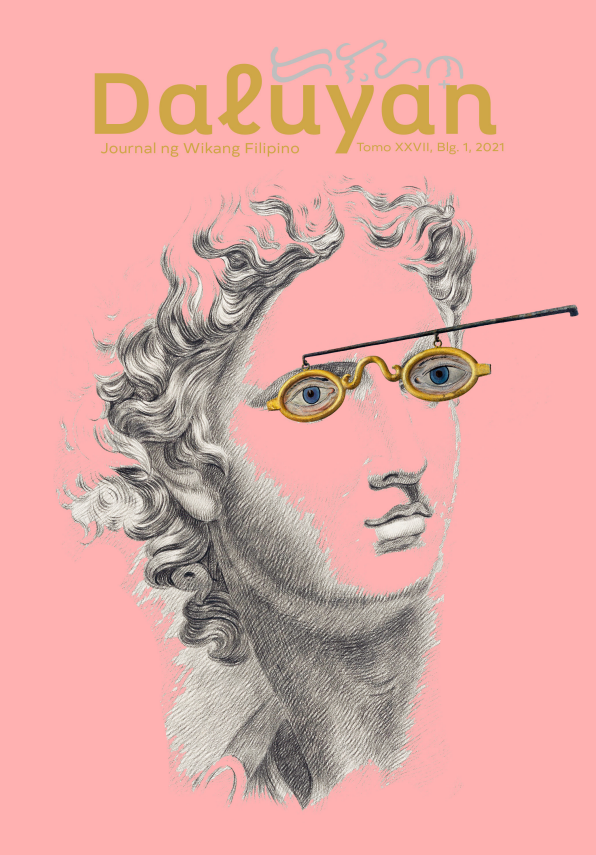Panimulang Pagsubok sa Interpretasyon ng Panulat ni Lualhati Bautista
Abstract
Abstrak
Inilahad sa panimulang pagsusuri ng panitik ni Bautista ang tema ng balighong sitwasyon ng kababaihan sa neokolonyang lipunan. Isinakonteksto sa buhay ng awtor at kaligirang sosyo-politikal ang porma at estruktura ng ilang akda na kasisinagan ng mga problemang isinadula sa mga nobelang sumunod. Sa pagtampok sa kontradiksiyon ng uri at kasarian sa mala-piyudal-kapitalistang orden, isinagisag ni Bautista ang masalimuot na katayuan ng babae bilang ina/asawa. Ibinalangkas niya ang imahinaryo't simbolikong proseso ng pagkamalay ng babae sa dalawang palapag ng kulungan ng patriyarkal na paghahari at burgesyang pagsasamantala. Makahulugan ang pagkamulat at pagkilos ng babaeng ina/asawa kasangkot sa pambansang pag-oorganisa at mobilisasyon ng kababaihan sa makasaysayang transpormasyon ng bansa sa huling kuwarto ng siglong nagdaan.
Mga Susing Salita: kasarian, patriyarkiya, kababaihan, maternidad, pamilya, neokolonyal, piyudal, trabaho
Abstract
In this preliminary critique of Lualhati Bautista's works, this essay seeks to diagnose the distorted situation of women in a neocolonial society. It endeavors to contextualize the form and structure of selected works in the life of the author and its socio-political background, works that reveal the problems dramatized in her novels. In rendering the contradictions of class and gender in a semi-feudal, capitalist order, Bautista embodied the complex position of women as mother/wife. She analyzed the imaginary and symbolic processes involved in the coming-to-awareness of women trapped in the two prisons of patriarchal domination and bourgeois exploitation. The awakening of women as mother/wife and her participation in collective projects are meaningful signs. They constitute significant historical initiatives in the movement to organize and mobilize women as collective agents in the radical transformation of the Filipino nation in the last quarter of the past century.
Keywords: gender, patriarchy, women, maternity, family, neocolonial, feudal, employment/job


